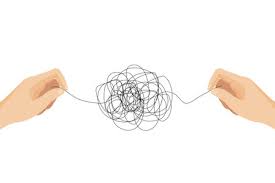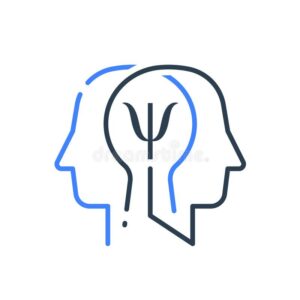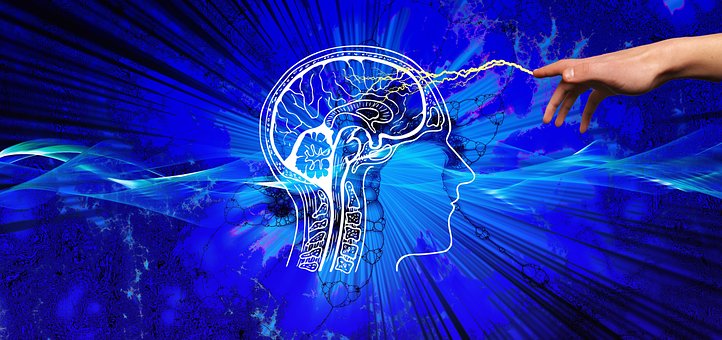Indian psychology is a fascinating field that delves into the study of the human mind and behavior from the perspective of ancient Indian philosophy and spirituality. It offers a unique and holistic approach to understanding the complexities of the human psyche, encompassing not only the individual but also the collective consciousness. In this blog, we will explore the foundations of Indian psychology, its key principles and concepts, and how it can be applied to enhance our well-being and understanding of ourselves and others.
Contents
What Is Indian Psychology?
Indian psychology is a branch of psychology that draws its principles and concepts from the ancient philosophical and spiritual traditions of India. It offers a unique and holistic approach to the study of the human mind and behavior, focusing on the interconnectedness of the individual and the collective consciousness. This emphasizes the importance of understanding the human psyche within the larger context of cultural, social, and spiritual factors.
What Are The Techniques Of Indian Psychology?

Indian psychology incorporates various techniques that have been used for centuries to promote mental and emotional well-being. Here are some of the key techniques of Indian psychology:
- Mindfulness: Mindfulness is a technique that involves paying attention to the present moment without judgment. It helps individuals become more aware of their thoughts, emotions, and bodily sensations.
- Yoga: Yoga is a physical and mental practice that originated in India thousands of years ago. It includes a series of postures, breathing exercises, and meditation techniques that promote physical health, mental clarity, and emotional balance.
- Meditation: Meditation is a practice that involves focusing the mind on a particular object or thought to achieve a state of calmness and relaxation. It often reduces stress and anxiety and improves mental clarity and emotional well-being.
- Ayurveda: Ayurveda is a traditional system of medicine that originated in India. It incorporates various techniques, including herbal remedies, dietary changes, and lifestyle modifications, to promote physical and mental health.
- Jnana Yoga: Jnana Yoga is a branch of yoga that emphasizes self-inquiry and introspection. It involves the use of logic and reason to gain insight into the nature of the self and the world.
These techniques are not only in Indian psychology but have also been adopted by many Western psychologists and mental health professionals as effective tools for promoting mental and emotional well-being.
What Is The Ultimate Goal Of Indian Psychology?
The ultimate goal of Indian psychology is to promote the well-being of the individual and the collective consciousness. Indian psychology recognizes the interdependence of the individual and the larger community, and seeks to promote harmony and balance in both.
Indian psychology places a strong emphasis on spiritual growth and self-realization, recognizing that these are key components of mental and emotional well-being. It seeks to help individuals connect with their inner selves and achieve a sense of peace and contentment.
Another goal of Indian psychology is to promote social and cultural harmony. It recognizes the importance of social and cultural factors in shaping individual behavior and seeks to address these factors to promote greater social cohesion and understanding.
In summary, the ultimate goal of Indian psychology is to promote the well-being of individuals and communities by helping them achieve greater spiritual growth, self-realization, and social and cultural harmony.
Role Of An Indian Psychologist
An Indian psychologist can help individuals and communities in several ways. It depends on their training and area of expertise. Here are some of the ways an Indian psychologist can help:
- Providing counseling and therapy: An Indian psychologist can offer counseling and therapy to individuals who are struggling with mental issues. This includes such as anxiety, depression, or trauma. They may use a variety of techniques such as mindfulness, yoga, and meditation. This helps their clients achieve greater emotional balance and well-being.
- Conducting research: Indian psychologists may research to explore the efficacy of traditional Indian practices. This includes yoga and meditation in promoting mental and emotional health. They may also explore the cultural and social factors that contribute to psychological distress and develop interventions to address these factors.
- Consulting with organizations: Indian psychologists may work with organizations. It covers schools, hospitals, and businesses to promote mental health and well-being. They may provide training and education on mindfulness, stress management, and other techniques. All of this helps employees and clients manage their mental health.
- Advocating for mental health: Indian psychologists may also play a role in advocating for greater awareness and resources for mental health issues. They may work with policymakers and community leaders to develop programs and initiatives that promote mental health and well-being.
Overall, an Indian psychologist can help individuals and communities achieve greater mental and emotional well-being. They provide counseling and therapy, conduct research, consult with organizations, and advocate for mental health.
Finding A Right Indian Psychologist

Finding the right Indian psychologist can be a daunting task, but here are some steps you can take to help you find a professional who meets your needs:
- Ask for referrals: Ask your friends, family members, or healthcare providers for recommendations. They may know of a qualified Indian psychologist who can help you.
- Check credentials: Look for a psychologist who is licensed to practice in your state and has the appropriate credentials and training in Indian psychology.
- Research online: Many psychologists have websites or profiles on online directories. Look for reviews and testimonials from previous clients to get a sense of their approach and effectiveness.
- Schedule a consultation: Most psychologists offer an initial consultation, either in person or over the phone. Use this opportunity to ask questions and get a sense of whether the psychologist is a good fit for you.
- Consider cultural fit: It is important to find a psychologist who understands and respects your cultural background and values. Look for someone who has experience working with individuals from similar cultural backgrounds as yours.
- Trust your instincts: Ultimately, the most important factor in finding the right psychologist is feeling comfortable and safe with them. Trust your instincts and choose a psychologist who you feel you can trust and connect with.
By following these steps, you can find an Indian psychologist who can provide the support and guidance you need to achieve greater mental and emotional well-being.
Conclusion
In conclusion, Indian psychology offers a unique and holistic approach to understanding the human mind and behavior. Drawing on ancient philosophical and spiritual traditions, Indian psychology emphasizes the interconnectedness of the individual and the collective consciousness and recognizes the role of mindfulness, yoga, and meditation in promoting mental and emotional well-being. Indian psychologists can play a vital role in promoting greater mental and emotional well-being for all.
For more information, please contact MantraCare. Online therapy types include videoconferencing, phone sessions, messaging-based therapy, chat-based therapy, and therapy based on different problems. If you have any queries regarding Online Counseling experienced therapists at MantraCare can help: Book a trial therapy session


